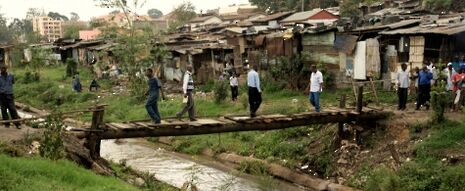Film: Cambridge African Film Festival
Jim Ross is impressed by the diversity and quality of the cinematic talent on show at this celebration of African film.

Cambridge, for such a small city, is blessed with a vibrant cinema scene. Part of that landscape is the Cambridge African Film Festival, now in its 11th year, making it the longest running such festival in the UK. The festival exists as part of a growing movement to showcase the diverse range of cinema from the continent, one of the four major festivals alongside Africa in Motion (Edinburgh), Afrika Eye (Bristol) and the extensive Film Africa (London, now confirmed as an annual festival). Founded by Cambridge graduate students, the festival exists partly to debunk popular and persisting views of Africa, tellING stories from within the culture, rather than from the outside looking in. The selection of films in the 2012 edition certainly re
flect this, including a kaleidoscopic mix of national tales lumped into one continental moniker. This is an area of film of growing importance and a potentially exciting frontier. Although Nollywood is extremely prolific, cinema in Africa as a whole is one that emerges on the backdrop of well-developed industries the world over with easily available equipment. Few, if any, film industries have emerged with such a well-developed and accessible multimedia structure. The potential output of the continent will be an intriguing one to witness, combining new technology as well as absorbing film culture from the world over.
Nairobi Half Life, which opened the festival on Saturday, is a part of the One Fine Day Films stable. The workshop is an effort to give a voice to African filmmakers who have hitherto built up technical nous through co-productions, which is especially the case with director David ‘Tosh’ Gitonga. The film follows Mwas, a young man from semi-rural Kenya who harbours acting ambitions. When he travels to Nairobi to realise this dream, however, he is sucked into a vortex of petty crime and exploitation by the city. Although this aspirational tale is a well-worn formula, the particular viewpoint employed lends a freshness to it.
In addition, the beauty of La Pirogue – the tale of a West African fisherman leading a voyage to the shores of Spain in a rickety ‘pirogue’ – lies in the perspective of the story. Essentially a kinetic chamber-piece, the vast majority of the film takes place within the confines of the boat. Those on the voyage are travelling for various reasons – to reconnect with or leave a better future behind for loved ones or just chancing their luck – but the striking emotion elicited in this claustrophobic space is remarkable. Dedicated to those who have perished on such voyages, it is a simple story made all the more powerful for its lack of narrative clutter.
The shorts programmes also feature a great amount of invention and the festival will also provide an opportunity to ask questions of three directors present to showcase their work in Cambridge. With only 7 days, CAFF is inevitably a mere snapshot (Film Africa in London featured over 70 films this year) but one well worth capturing. As well as offering a glimpse of African cinema, the festival is also a snapshot of the vibrant cinema scene in Cambridge. With many student film societies and a city-centre cinema showcasing a diverse range of the cinema, the student community is well placed to take advantage of such successful and exciting events.
 News / Fitz students face ‘massive invasion of privacy’ over messy rooms23 April 2024
News / Fitz students face ‘massive invasion of privacy’ over messy rooms23 April 2024 News / Climate activists smash windows of Cambridge Energy Institute22 April 2024
News / Climate activists smash windows of Cambridge Energy Institute22 April 2024 News / Copycat don caught again19 April 2024
News / Copycat don caught again19 April 2024 Comment / Gown vs town? Local investment plans must remember Cambridge is not just a university24 April 2024
Comment / Gown vs town? Local investment plans must remember Cambridge is not just a university24 April 2024 News / Emmanuel College cuts ties with ‘race-realist’ fellow19 April 2024
News / Emmanuel College cuts ties with ‘race-realist’ fellow19 April 2024





